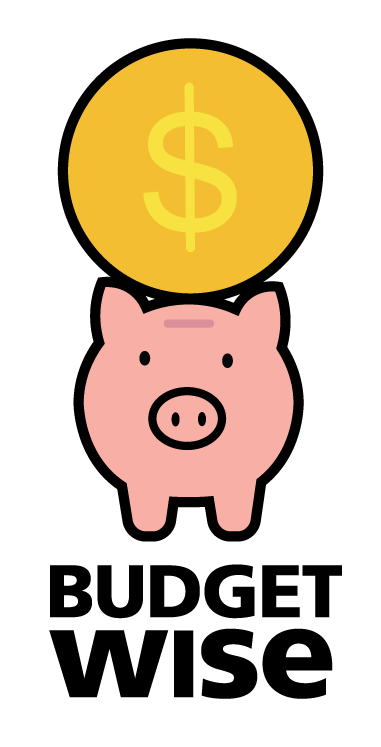
Saving money is a skill, and like any skill, it sharpens over time with practice. The key to successful personal finance is adopting small positive practices. The more these saving habits become a part of your life, the more they become second nature – and the more your bank account grows as a result!
Develop a Smart Investment Strategy
A good rule to follow, whether at a casino or when monitoring the stock market, is knowing when to cut your losses. Give yourself an amount at which you’ll sell your stocks when your portfolio isn’t looking so good – maybe it’s the amount you initially put in, or perhaps something higher. You don’t want to lose more than you originally spent.
Pay Your Debts Wisely
One of the best saving habits you can get into is to pay your debts off in full when possible, or at least higher than the minimum. Paying off a credit card bill or medical bill little by little may be easier in the short run, but the downside to consistently choosing the minimum option is that you accrue interest, so you pay more in the long run.
Use Your Credit Card Carefully
Having a credit card comes in handy, but it’s important to avoid overspending. Keep in mind the money you have in your checking or savings account and never spend more than what you actually have. Unlike most debit cards, credit cards offer reward points and other benefits, so they can be a great asset for your finances.
Limit the Late-Night Snacks
One great piece of advice for both your body’s health and your financial health – don’t eat anything after midnight! We consume food to have energy for the tasks ahead. After midnight, the only task you should be focused on is sleeping. Avoiding late night snacks after this time can help you cut down on grocery bills, or the cost of restaurant food if you’re out late with family or friends.
Buy Higher-Quality Products
Some items are worth more money for good reason and choosing them over cheaper products can actually save you money in the long run. Take a car, for example; you may be tempted by the lower price tag of an older, used car. In the short run, yes, you save money. But once the car starts breaking down and you start having to bring it into the shop for repairs, you’ll wish you had purchased a newer model.
Keep Your Car in Good Shape
Speaking of cars, make sure to keep yours well-maintained. Regularly getting oil changes and checking to see what that funny noise is under the hood, rather than ignoring it, can help you avoid more costly problems down the road (no pun intended).

Manage Your Money Online
Consider switching to online banking and setting up automatic payments. This might seem a little scary because you may not feel like you have as much control over your finances, or you might be worried that a payment will be taken out when your account doesn’t have enough funds.
To set your mind at ease, try using an app like Mint, which alerts you when your funds are running low. Setting up automatic payments for your bills prevents you from accidentally paying late and getting charged late fees. After all, slipping up and forgetting to pay one of your bills can happen to even the most conscientious among us.
In addition, apps and sites like this are useful in two other amazing ways:
- They give you an overview of all your accounts, helping you keep track of everything so your finances are less overwhelming.
- They allow you to see the patterns in your spending habits, enabling you to see where your money is going every month, and what you might want to cut back on.
Still feeling wary about online banking? At least take one piece of advice from this tip: Create a spreadsheet for yourself that keeps track of all your accounts at once. Getting a bird’s- eye view of your finances can really help you with your budget.
Set up Your Retirement Fund Early
Don’t wait too long to start setting up a retirement fund. Once you have a better feel for what you have and what you’re pulling in regularly (using the previous tip), you’ll be better able to gauge how much you can part with each month to put into this essential fund. Putting aside 10% of your income each month for retirement is a safe bet. To make this easier you can set up an automatic transfer of a designated amount of money each month to go into these separate accounts, so you never accidentally skip a month.
Add More Money to Your 401(k)
Speaking of retirement, if you work at a job that allows you to have a 401(k), you might consider going for a higher contribution, or even up to the limit, also known as “maxing out.” Think carefully if you can afford it in the short term, though – maxing out is not for everyone’s budget. But if this saving habit is doable for you, you’ll end up with more money for your retirement than you would’ve with the lower contribution. In fact, it’s also a good idea to increase your 401(k) contribution every time you get a raise.
Pick up Handy Household Skills
In the process of sharpening your money-saving skills, you may also want to pick up some other valuable skills along the way, especially regarding your home. To save money on home upgrades and small repairs you may want to DIY some of your design projects or pick up a few basics on plumbing, painting and fixing leaks. You’ll be proud of yourself, too!
Establishing even just one or two of these money saving habits can help you reach your money goals. Get started today!
This article has been updated and republished from a previous version.
One Thought on “10 Money Saving Habits to Start Right Now”
Leave A Comment
Comments are subject to moderation and may or may not be published at the editor’s discretion. Only comments that are relevant to the article and add value to the Your AAA community will be considered. Comments may be edited for clarity and length.















HAVING MORE MONEY IS SIMPLE, “BUY WHAT YOU NEED, NOT WHAT YOU WANT”. IF OVERTIME IS AVAILABLE TAKE IT. WORK MORE DAYS IF ALSO AVAILABLE. I DID ALL THIS, RETIRED “RICH” COMPARED TO MOST.